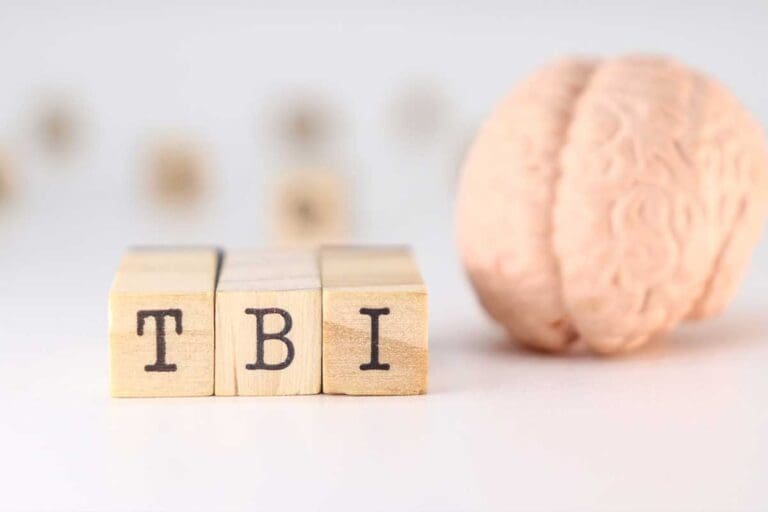Key Takeaways
Traumatic brain injuries often cause emotional and psychological changes that are invisible but impactful.
Common emotional effects include depression, anxiety, irritability, and changes in behavior or personality.
These challenges can strain relationships, affect work performance, and lead to social isolation.
Support systems, therapy, and professional counseling play a key role in emotional recovery.
Compensation for TBIs should consider the emotional and mental impact as part of overall damages.
How TBIs Affect Emotions and Mental Health
The brain controls more than just physical functions—it regulates emotions, thoughts, and personality. When an injury occurs, even a “mild” TBI can disrupt these processes, leading to:
- Mood Swings: Sudden and intense shifts in mood, such as going from calm to angry or sad without explanation.
- Depression: Persistent sadness, feelings of hopelessness, and loss of interest in activities that once brought joy.
- Anxiety: Overwhelming feelings of worry, fear, or nervousness, often triggered by the injury’s consequences or the recovery process.
- Irritability and Agitation: Short tempers and frustration can become more common, often due to difficulty coping with cognitive or physical impairments.
- Personality Changes: Loved ones may notice the victim acting “like a different person,” which can include impulsivity, inappropriate behavior, or apathy.
- Post-Traumatic Stress Disorder (PTSD): Traumatic events leading to the injury can cause PTSD symptoms, such as nightmares, flashbacks, or avoidance of triggers.
Why Emotional Challenges Are Overlooked
Unlike physical injuries, emotional changes caused by TBIs are often invisible, making them harder for others to recognize or understand. Victims themselves may struggle to articulate how they feel, leading to frustration and isolation.
- Lack of Awareness: Emotional and mental health effects are sometimes dismissed as “just stress” or unrelated to the injury.
- Delayed Onset: Emotional symptoms may not appear immediately after the injury, creating confusion about their source.
- Stigma: Many people are hesitant to discuss mental health issues, fearing judgment or misunderstanding.
Takeaway: Emotional changes are a real and serious consequence of TBIs that require the same attention and care as physical injuries.
The Impact on Relationships and Daily Life
The emotional effects of a TBI can ripple through every aspect of a victim’s life:
1. Strained Relationships
- Family members and friends may struggle to adjust to personality or behavior changes.
- Loved ones may feel helpless, frustrated, or even resentful as they take on caregiving roles.
Example: A formerly patient and calm individual becomes easily irritable, causing tension at home.
2. Workplace Challenges
- Emotional instability, difficulty concentrating, and fatigue can affect work performance.
- Employers may not understand the cognitive and emotional struggles of TBI survivors.
Example: Anxiety or emotional outbursts make it difficult for a TBI victim to return to a high-pressure job.
3. Social Isolation
- Victims may withdraw from friends and activities to avoid judgment or embarrassment.
- Social anxiety or depression can lead to feelings of loneliness and detachment.
Example: Someone who once loved group outings may isolate themselves due to anxiety or fear of emotional episodes.
The Role of Therapy and Support Systems
Addressing the emotional impact of TBIs requires a comprehensive approach that combines professional care, family support, and self-care strategies.
- Professional Therapy
- Cognitive-Behavioral Therapy (CBT): Helps TBI victims manage anxiety, depression, and mood changes.
- Psychiatric Care: Medication can help stabilize mood and address emotional symptoms.
- Occupational Therapy: Assists with regaining independence and coping with life changes.
- Family and Caregiver Support
- Educating family members about TBIs helps them provide better emotional support.
- Support groups allow caregivers to connect with others facing similar challenges.
- Self-Care Strategies
- Practicing mindfulness, meditation, and relaxation techniques can help manage anxiety and irritability.
- Establishing a routine can provide stability and structure for TBI survivors.
Seeking Compensation for Emotional Damages
When pursuing a personal injury claim for a TBI, emotional damages should be included as part of the compensation. Emotional and psychological effects often require ongoing therapy and can impact the victim’s quality of life.
- Non-Economic Damages: Compensation for pain and suffering, emotional distress, and loss of enjoyment of life.
- Future Treatment Costs: Therapy, counseling, and psychiatric care expenses should be factored into the claim.
- Impact on Earning Capacity: Emotional challenges may prevent victims from returning to work or achieving career goals.
Tip: An experienced personal injury attorney can help calculate the full emotional and financial impact of a TBI to ensure fair compensation.
Conclusion
The emotional impact of traumatic brain injuries is often as significant as the physical consequences, yet it is frequently overlooked. TBI survivors may face mood swings, depression, anxiety, and personality changes that disrupt their relationships, careers, and quality of life.
Addressing these challenges requires professional therapy, family support, and a legal team that understands the full scope of TBI-related damages. We advocate for TBI victims to ensure they receive the emotional, physical, and financial support they need.



